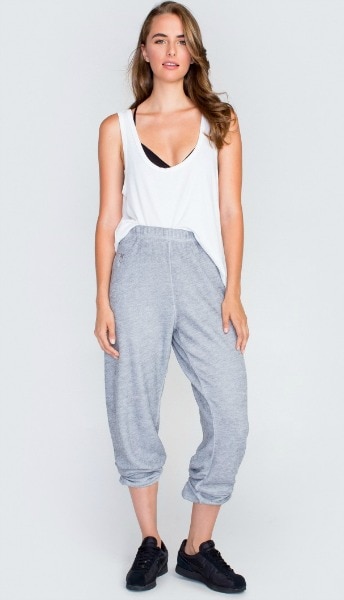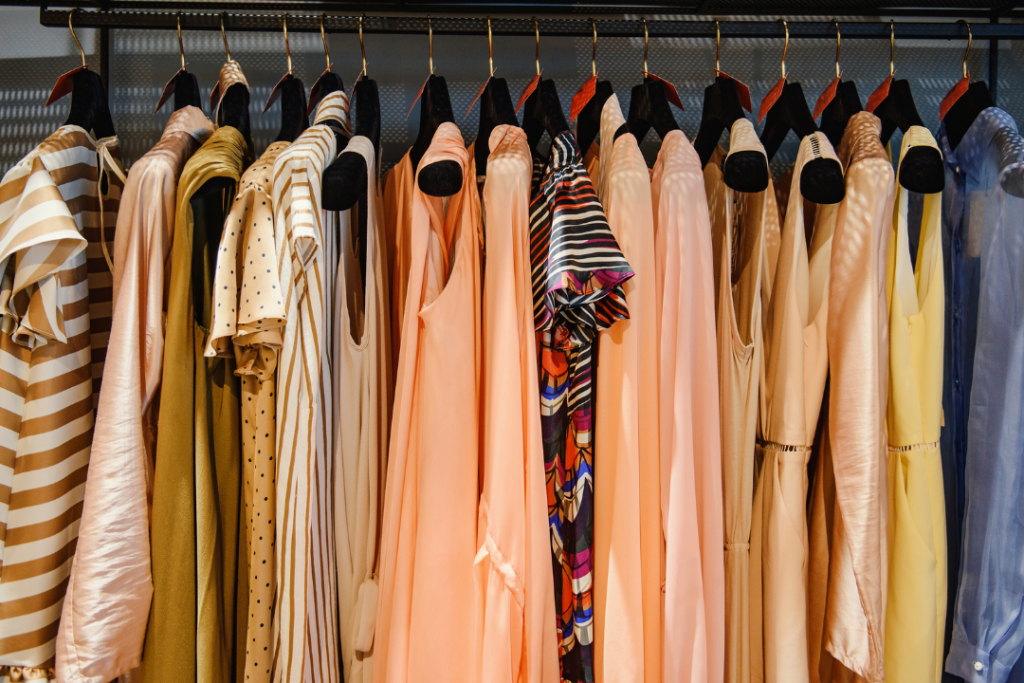
Every other Thursday, I’ll be tackling important topics for college women as part of my new column, Real Talk. As we all (sadly) know, college isn’t all fun and games and there are some serious things that just don’t get discussed. In this space, I will touch on some of those things.
Today, I wanted to talk about fashion and what it actually means to wear an article of clothing. Many times, your clothes speak before you do, and can have social and political meanings far beyond simple aesthetics.
Clothing choice can color our thoughts about people, cultures, countries, and more. There are whole blogs dedicated to looking like the ever-classy French girl, and even more on how to “dress for success.” Fashion has also become highly politicized, with rules for what we can and cannot wear, what is appropriate for this or that event, and even how our bodies should look.
There are so many ways that our clothes can have meaning beyond aesthetics, but below I’ll delve into three big ones, explaining how our clothing choices affect our lives in ways we might not consider.
Table of Contents
1. Are your clothes college-appropriate?
Personally, I’m a big believer in wearing whatever makes you happy. Rocking a crop top in the dead of winter? I’m all for it! Just make sure not to get frostbite. Wear a suit to lecture? More power to you. But I’m also aware that wearing certain pieces will give me a different “look.” As hard as we try, it’s difficult not to stereotype a little based on clothes, especially when you only see a person for five seconds. (Blink by Malcolm Gladwell is a great book on this.)
Sweatpants every now and then aren’t going to kill your vibe — but remember there’s a reason that Hillary Clinton is iconic for her pantsuit love affair, regardless of what you think about her politically.
I will be the first to admit that clothes aren’t always a good reflection of someone’s character, but just like there are people that appreciate a beautiful and graphic PowerPoint, there are others that take into account what you picked out of your closet that day. Plus, taking an extra minute or two to decide what to wear might give you the kick that you need to study, focus, and work hard!

The best (and worst) thing about college is probably the freedom — your mom can’t tell you that those colors don’t go together and that you most certainly should never mix patterns or wear white in winter. But is there a line?
Even though almost anything can be turned class-appropriate (check out Class to Night Out), I think there are some basic rules that have to do with respecting the people around you. In my book, that means staying away from things like graphic tees with offensive sayings and anything culturally appropriating. While I doubt that your school’s dean is going to come down and have you expelled for wearing either of these things, I don’t doubt that someone’s feelings might get hurt.
So do you think there’s a dress code for college like there was in high school? Actually, that question brings us to our next point…
2. Do you want some unwanted attention?
Last August, a girl from Kentucky was sent home from high school for going against the school’s dress code and showing her…collarbones.
How do you feel about incidents like these? They seem to be happening more often, and the most common reasoning schools provide when asked is that certain articles of clothing are too provocative and distract boys. The girls of Woodford County High School made a short documentary talking about how they felt about their dress code. Some words they used were “unjust”, “objectifying”, “discriminatory”, and the list just keeps going on. Do you agree with them?
Along similar lines, a year ago, this catcalling video went viral. I grew up in New York and I can tell you that this woman’s experience is typical. Why is this important? Much of the talk today against women states that we should “appreciate the attention” or that we are “asking for it”. Some argue that if we don’t want this sort of attention, we should cover up and stop calling so much attention to ourselves. But in the video, the woman in question is wearing a black crew-neck and a pair of jeans…I think that’s a pretty standard outfit, certainly nothing that draws “unnecessary attention”. And if she was wearing a more fitted or revealing outfit, would it then be OK for men to treat her that way?
Many more unwanted incidents like sexual harassment and assault — both of which are common on college campuses — hold women responsible. The argument usually follows the same “asking for it” narrative, scolding women for wearing short skirts, drinking alcohol, or simply going to places where drunk men are present. Of course, we should always try to keep ourselves safe, but to me, something is askew when popular safety precautions include “not wearing a cute dress”.
In this sense yet again, clothes are so much more than aesthetic choices. So what do you think? Is it fair for people to tell us that whatever happens to us when we’re wearing a tank top is our fault?
3. Why are you wearing those pretty colors?
Remember those beautiful pastel tones that were chosen as Pantone’s Colors of the Year? Pantone didn’t just pick them out of a hat — it was a carefully calculated decision. Rose Quartz and Serenity are supposed to show the direction that our society is going in, with a particular statement about our changing views on gender. They may be pretty pastels, but they’re also much more than that.
When thinking about the intentional nature of colors in fashion – and, truly, how much back story there is for every garment we wear – this quote from Miranda Priestly in The Devil Wears Prada says it all:
‘This… stuff’? Oh. Okay. I see. You think this has nothing to do with you. You go to your closet and you select… I don’t know… that lumpy blue sweater, for instance because you’re trying to tell the world that you take yourself too seriously to care about what you put on your back. But what you don’t know is that that sweater is not just blue, it’s not turquoise. It’s not lapis. It’s actually cerulean. And you’re also blithely unaware of the fact that in 2002, Oscar de la Renta did a collection of cerulean gowns. And then I think it was Yves Saint Laurent… wasn’t it who showed cerulean military jackets? I think we need a jacket here. And then cerulean quickly showed up in the collections of eight different designers. And then it, uh, filtered down through the department stores and then trickled on down into some tragic Casual Corner where you, no doubt, fished it out of some clearance bin. However, that blue represents millions of dollars and countless jobs and it’s sort of comical how you think that you’ve made a choice that exempts you from the fashion industry when, in fact, you’re wearing the sweater that was selected for you by the people in this room from a pile of stuff.

In sum, fashion isn’t just a compilation of different clothes and accessories. I mean, not everything you wear is going to be meaningful or for anything other than your happiness. But keep in mind that there’s a lot more going on than you might initially appreciate. Indeed, fashion belongs in the New York Times and Washington Post just as much as it does in Vogue and Harper’s Bazaar.
What do you think?
How do you feel about fashion and its implications in our lives? What are your thoughts on dress codes and catcalling? Is there any topic about college or fashion that you want me to talk about next time? Let’s discuss in the comments.

Wearing the right attire will definitely boost your confidence levels. These tips will help you get the best wardrobe even if you’re living in a students’ home that is not too spacious. Using these tips you can wear the right dresses that will define you best. http://cslstudents.com.sg/en/
I really enjoyed this article! I agree that I try not to wear anything that appropriates a culture and offends somebody. I think it’s also great thay you brought up a lot of great points about what our clothes mean to us. It’s so subtle, and I’ve never given it so much thought before but it really makes you appreciate every little detail.
No one should EVER catcall or harass someone for what they’re wearing. Like you said, people should wear what makes them happy! And other people are not entitled to control our bodies or our happiness. Thanks for bringing awareness to the subject!